Laboratory sciences: Replacement therapy and testing | Virtual Summit 2020
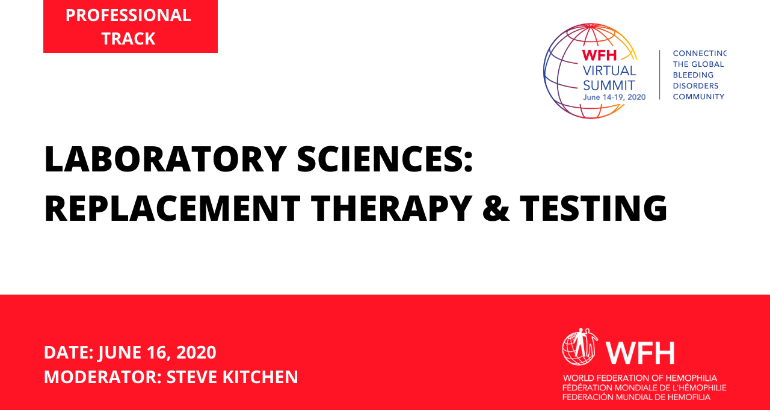
In this session from the WFH 2020 Virtual Summit, Steve Kitchen, Emmanuel Favaloro, Robert Gosselin and Geoffrey Kershaw discuss: How the emergence of chromogenic factor VIII testing has illuminated both discrepancies between testing methods and potential issues associated with product potency assessment How the creation of B-domain deleted recombinant factor VIII replacement product has initiated […]
Laboratory sciences: Laboratory issues and testing | Virtual Summit 2020
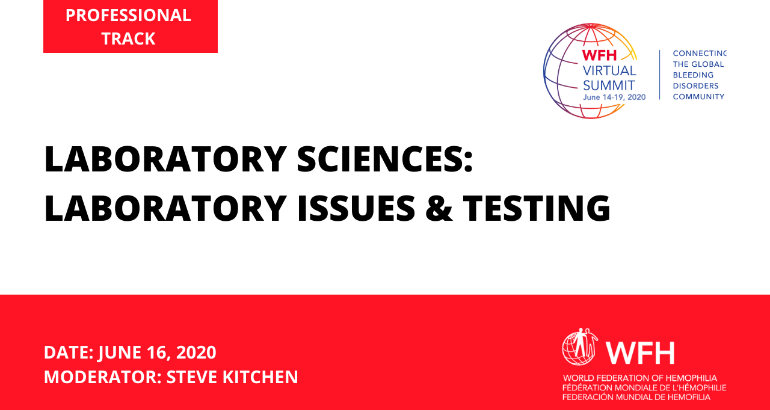
In this session from the WFH 2020 Virtual Summit, Steve Kitchen, Stefen Tiefenbacher, Anna Lowe and Annette Bowyer discuss: Gene therapy for FVIII and FIX: Will there be laboratory assay issues? Laboratory issues with isolated emicizumab therapy Laboratory issues when emicizumab and FVIII replacement are combined The WFH does not engage in the practice of […]
Medical plenary: Diagnosis | Virtual Summit 2020
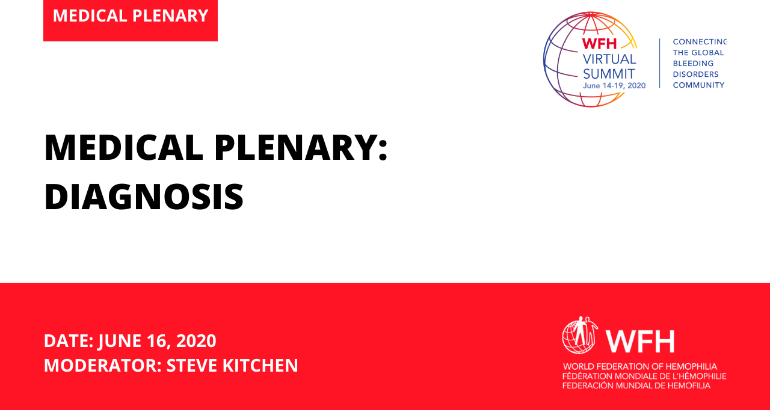
In this plenary from the WFH 2020 Virtual Summit, Steve Kitchen, Alok Srivastava and Pierre Toulon discuss the combination of high BAT score followed by NGS-based genetic diagnosis could be the new paradigm for the primary diagnosis of inherited bleeding disorders. The WFH does not engage in the practice of medicine and under no circumstances […]
Chromogenic Factor IX Assay in Laboratory Diagnosis and Monitoring of Treatment in Hemophilia B – To be aware of Challenges
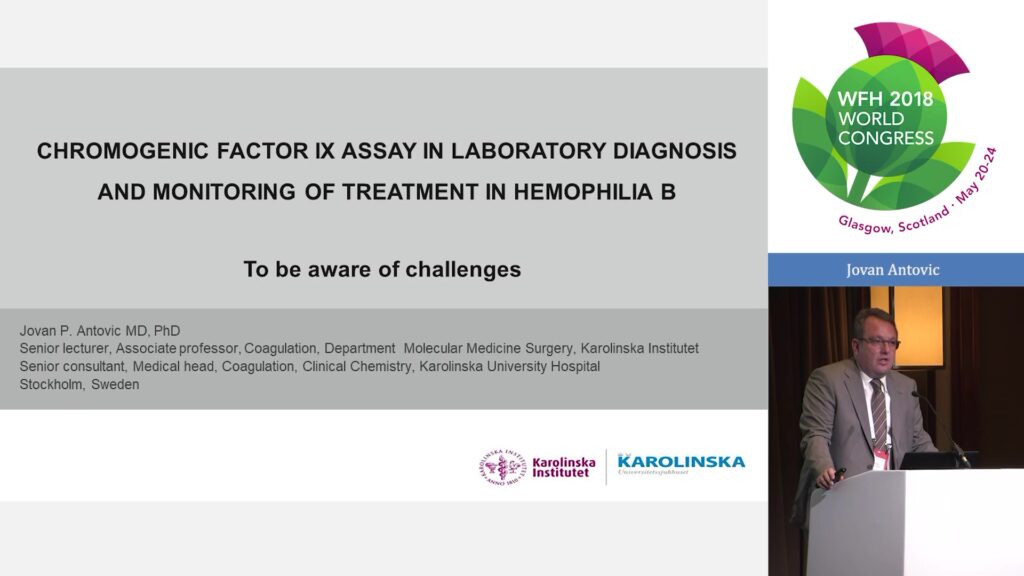
In the Tuesday afternoon session entitled Chromogenic Factor IX Assay in Laboratory Diagnosis and Monitoring of Treatment in Hemophilia B – To be Aware of Challenges, Jovan Antovic presents data comparing one-stage assays with chromogenic assays for quantifying clotting factor activity, focusing on the challenges presented by their use in diagnosis.
How to Set Up Chromogenic FVIII and FIX Assays
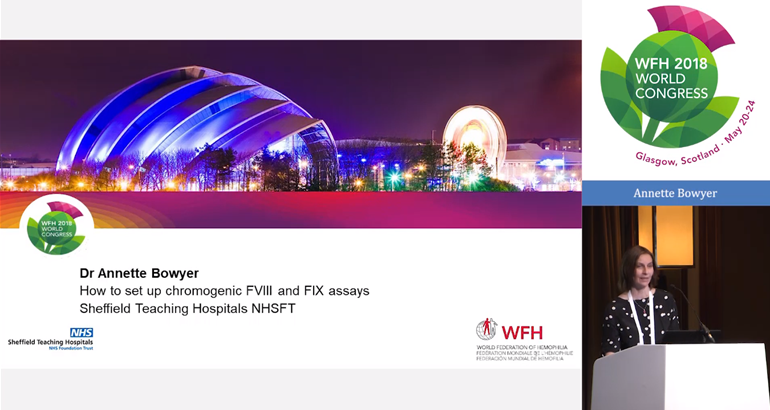
In the Tuesday afternoon session entitled Role of Chromogenic Assays in Hemophilia Diagnosis, Annette Bowyer explains how to set up chromogenic assays for FVIII and FIX, covering technical aspects such as calibration, accuracy, and quality control in the context of these assays, as well as the cost implications of using them appropriately.
Role of Chromogenic FVIII Assays in Hemophilia A Diagnosis
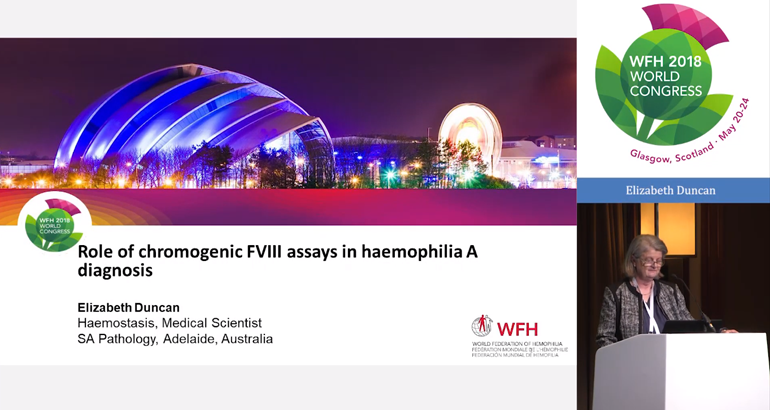
In the Tuesday afternoon session entitled Role of Chromogenic Assays in Hemophilia Diagnosis, Elizabeth Duncan presented a comparison of clotting assays versus the chromogenic assay in quantifying FVIII, highlighting genotype and phenotype discrepancies and reverse discrepancies.
FXI Deficiency: Genotype, Phenotype and Management
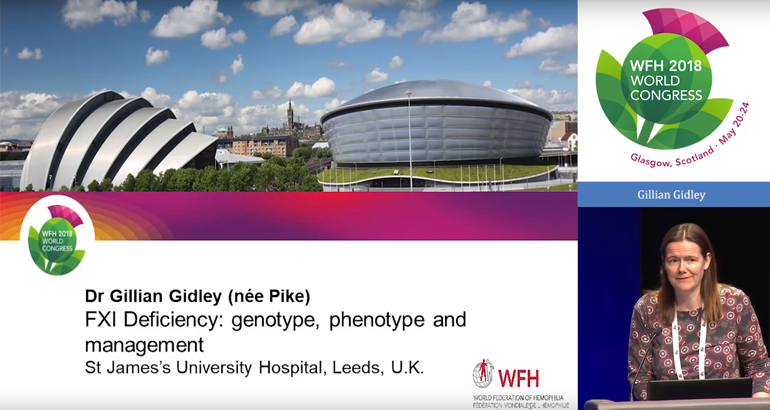
In the Monday afternoon session entitled Rare Bleeding Disorders, Gillian Gidley reviews the genotypes and phenotypes associated with FXI deficiency, shows data on different diagnostic assays, and covers recommendations for management of patients with FXI deficiency.
The Role of the Laboratory in Diagnosis and Management of Inhibitory Antibodies in Hemophilia
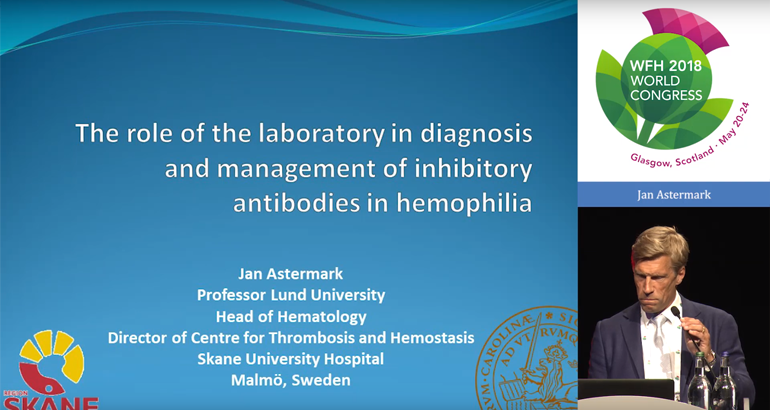
In the Monday morning session entitled Inhibitors: Clinical Aspects, Jan Astermark described the different diagnostic assays laboratories can carry out to measure inhibitors.
